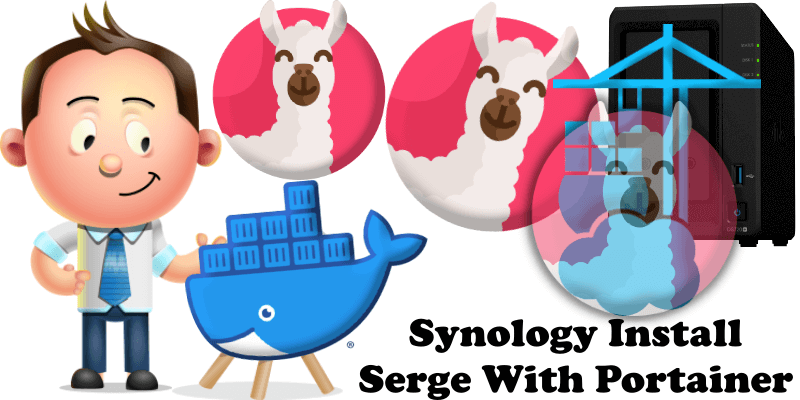
My previous guide for Serge involved the use of Task Scheduler. Today I’m offering a recommended and excellent alternative for installing the latest Serge version via Portainer. Serge is an AI chat interface based on llama.cpp for running Alpaca models. Entirely self-hosted, no API keys needed. Fits on 4GB of RAM and runs on the CPU. In this step by step guide I will show you how to install Serge on your Synology NAS with Docker & Portainer.
STEP 1
Please Support My work by Making a Donation.
STEP 2
Install Portainer using my step by step guide. If you already have Portainer installed on your Synology NAS, skip this STEP. Attention: Make sure you have installed the latest Portainer version.
STEP 3
Go to File Station and open the docker folder. Inside the docker folder, create one new folder and name it serge. Follow the instructions in the image below.
Note: Be careful to enter only lowercase, not uppercase letters.
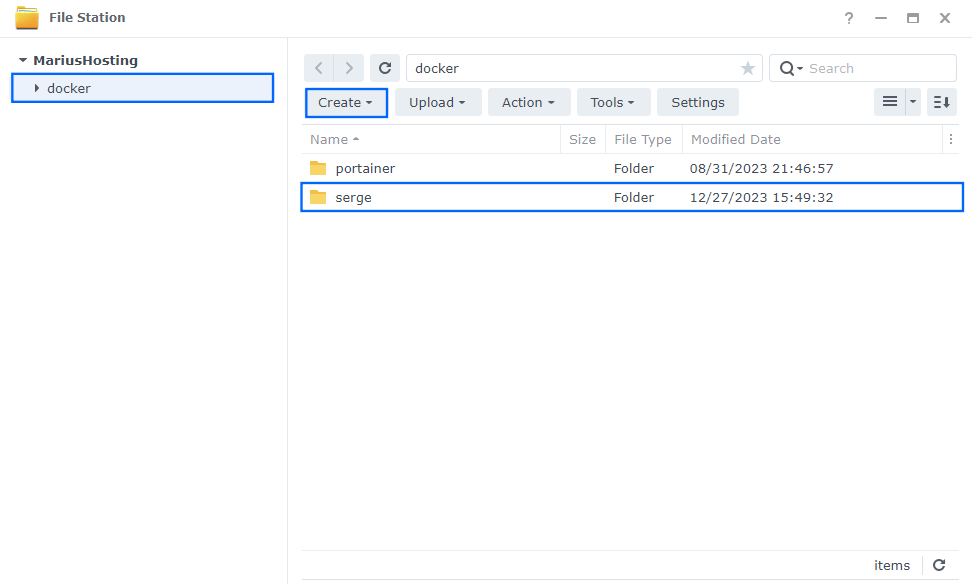
STEP 4
Now create two new folders inside the serge folder that you created at STEP 3 and name them data and weights. Follow the instructions in the image below.
Note: Be careful to enter only lowercase, not uppercase letters.
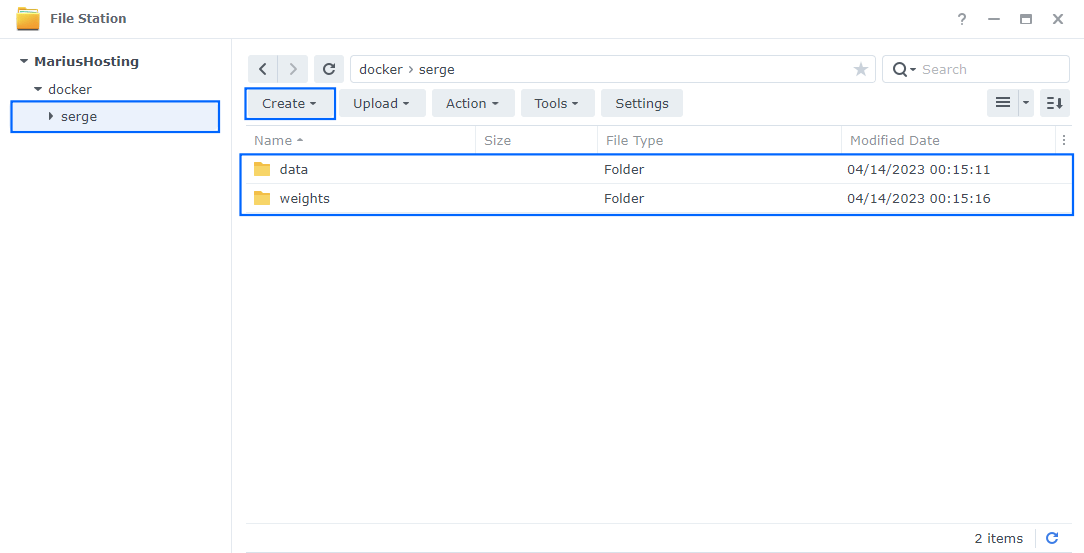
STEP 5
Log into Portainer using your username and password. On the left sidebar in Portainer, click on Home then Live connect. Follow the instructions in the image below.

On the left sidebar in Portainer, click on Stacks then + Add stack. Follow the instructions in the image below.

STEP 6
In the Name field type in serge. Follow the instructions in the image below.
version: "3.9"
services:
serge:
container_name: Serge
image: ghcr.io/serge-chat/serge:latest
mem_limit: 32g
security_opt:
- no-new-privileges:true
restart: on-failure:5
ports:
- 4622:8008
volumes:
- /volume1/docker/serge/data:/data/db/:rw
- /volume1/docker/serge/weights:/usr/src/app/weights:rw
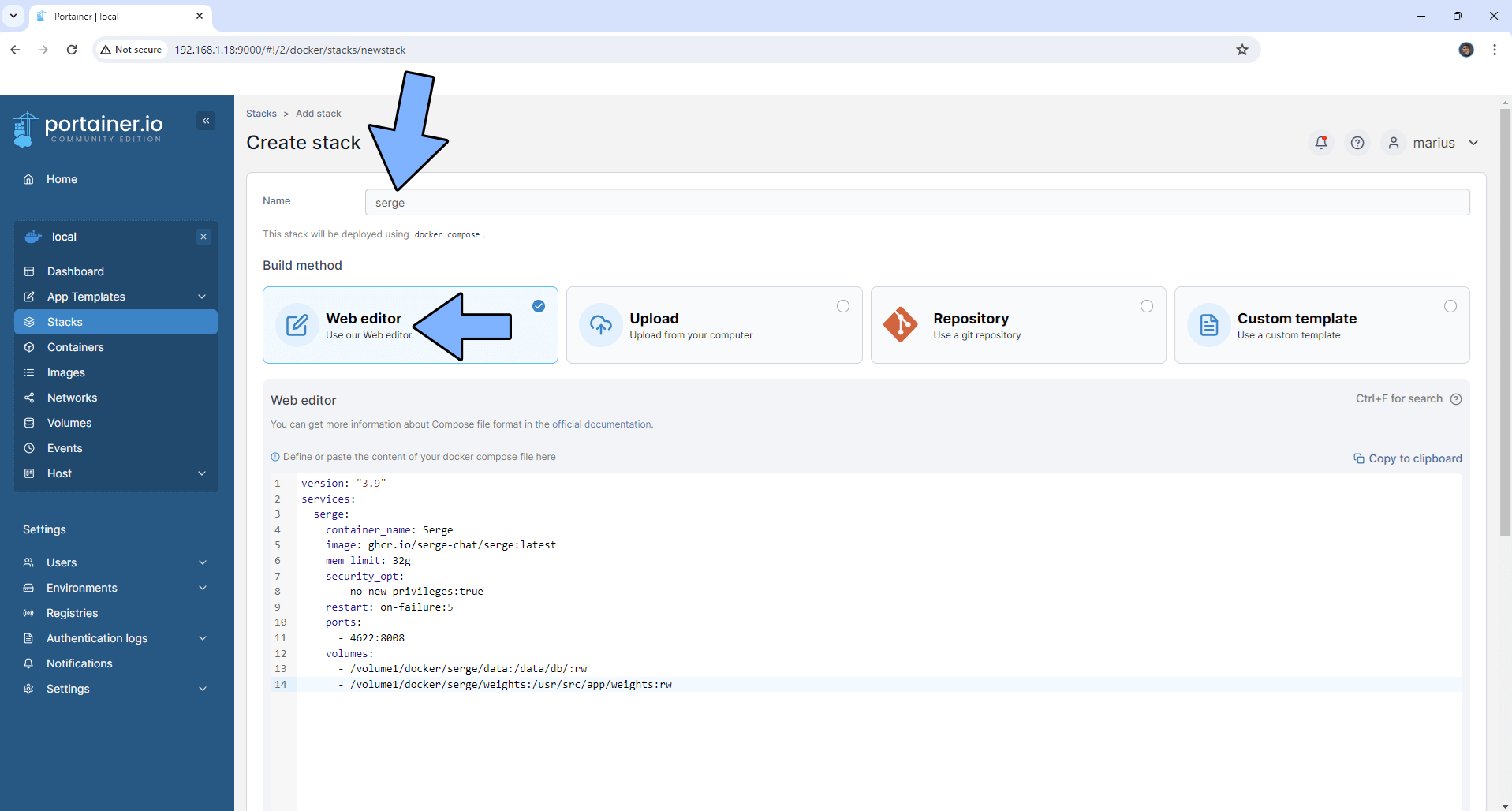
STEP 7
Scroll down on the page until you see a button named Deploy the stack. Click on it. Follow the instructions in the image below. The installation process can take up to a few minutes. It will depend on your Internet speed connection.
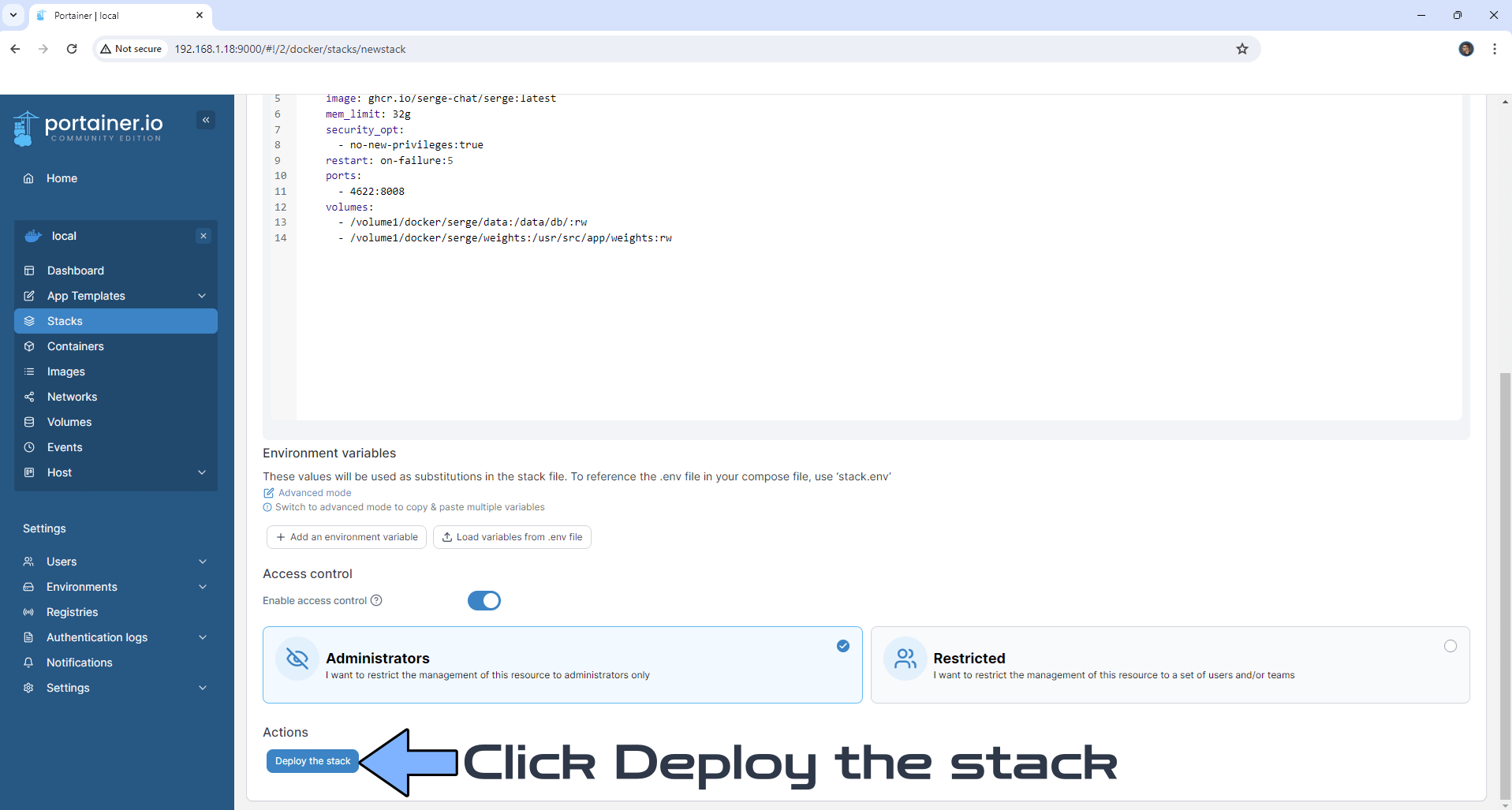
STEP 8
If everything goes right, you will see the following message at the top right of your screen: “Success Stack successfully deployed“.

STEP 9
🟢Please Support My work by Making a Donation. Almost 99,9% of the people that install something using my guides forget to support my work, or just ignore STEP 1. I’ve been very honest about this aspect of my work since the beginning: I don’t run any ADS, I don’t require subscriptions, paid or otherwise, I don’t collect IPs, emails, and I don’t have any referral links from Amazon or other merchants. I also don’t have any POP-UPs or COOKIES. I have repeatedly been told over the years how much I have contributed to the community. It’s something I love doing and have been honest about my passion since the beginning. But I also Need The Community to Support me Back to be able to continue doing this work.
STEP 10
The installation process can take up to a few seconds/minutes. It will depend on your Internet speed connection. Now open your browser and type in http://Synology-ip-address:4622 Click DOWNLOAD MODELS. Follow the instructions in the image below. ⚠️Warning: Serge will not work on older NAS models without AVX support such as the x20 series.
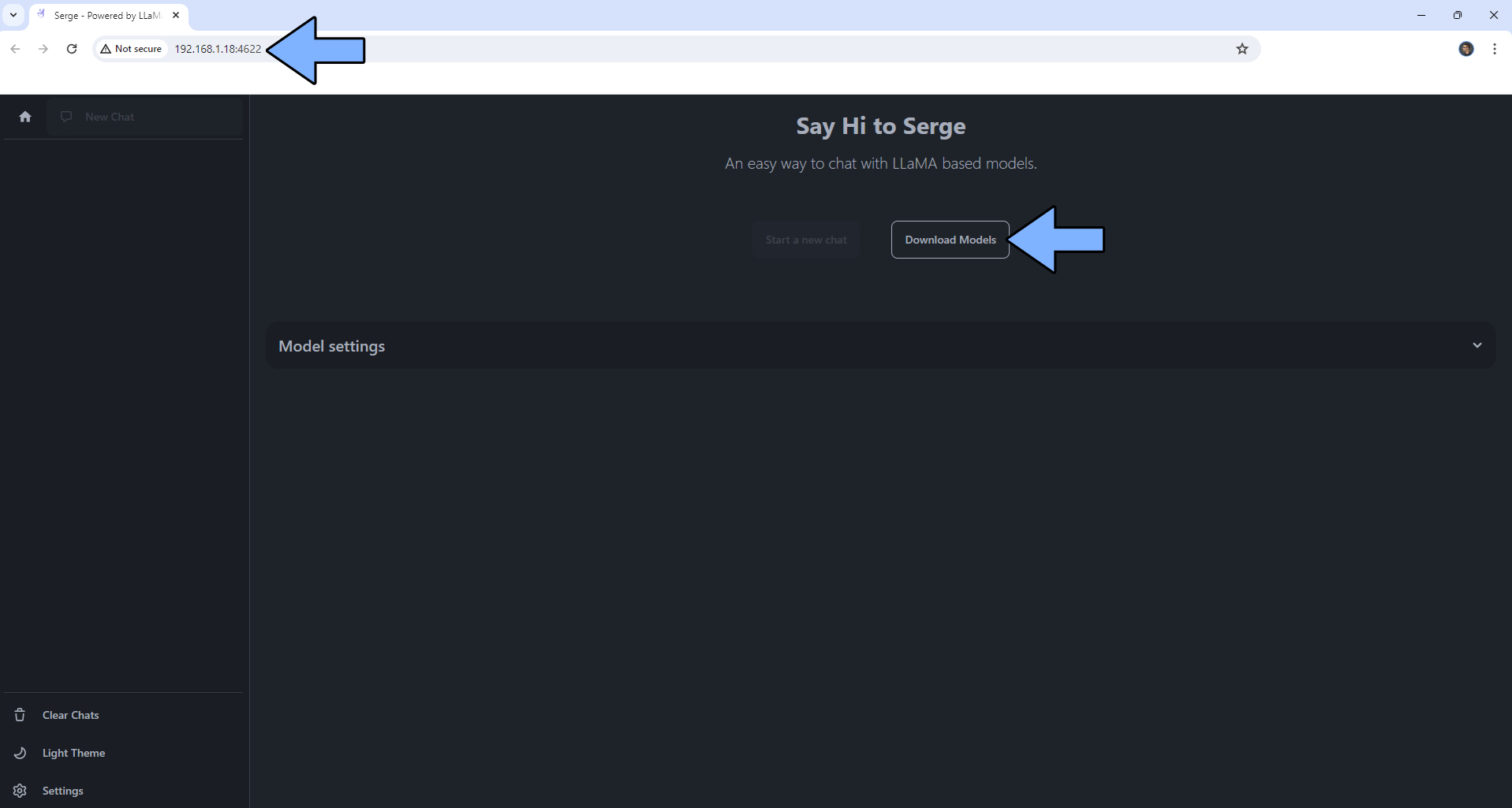
STEP 11
From the list, download one chat AI model, for example, Neural. Follow the instructions in the image below.
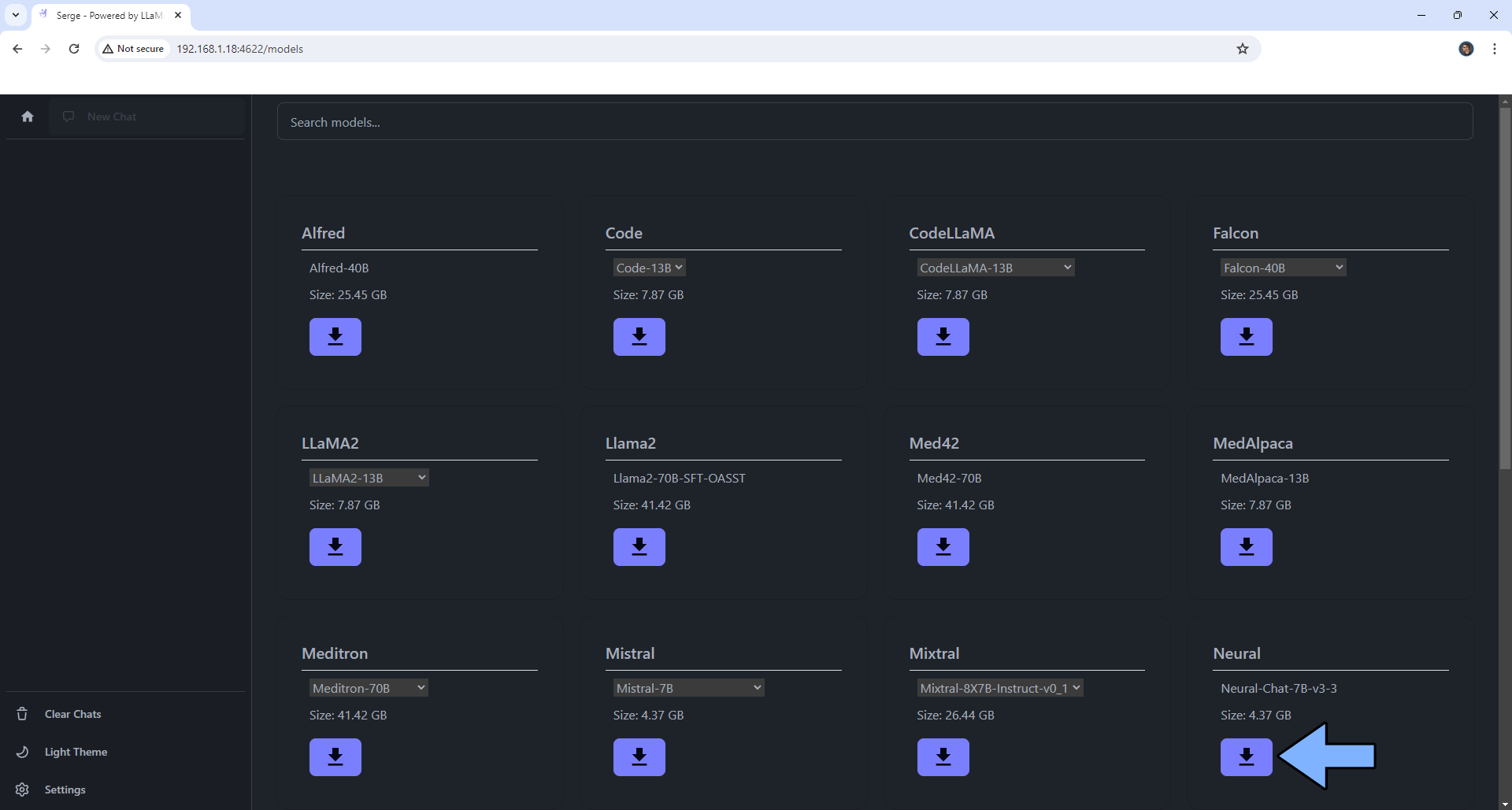
STEP 12
Wait until the download is complete.

STEP 13
Once the download is complete, click New Chat on the left sidebar. Follow the instructions in the image below.
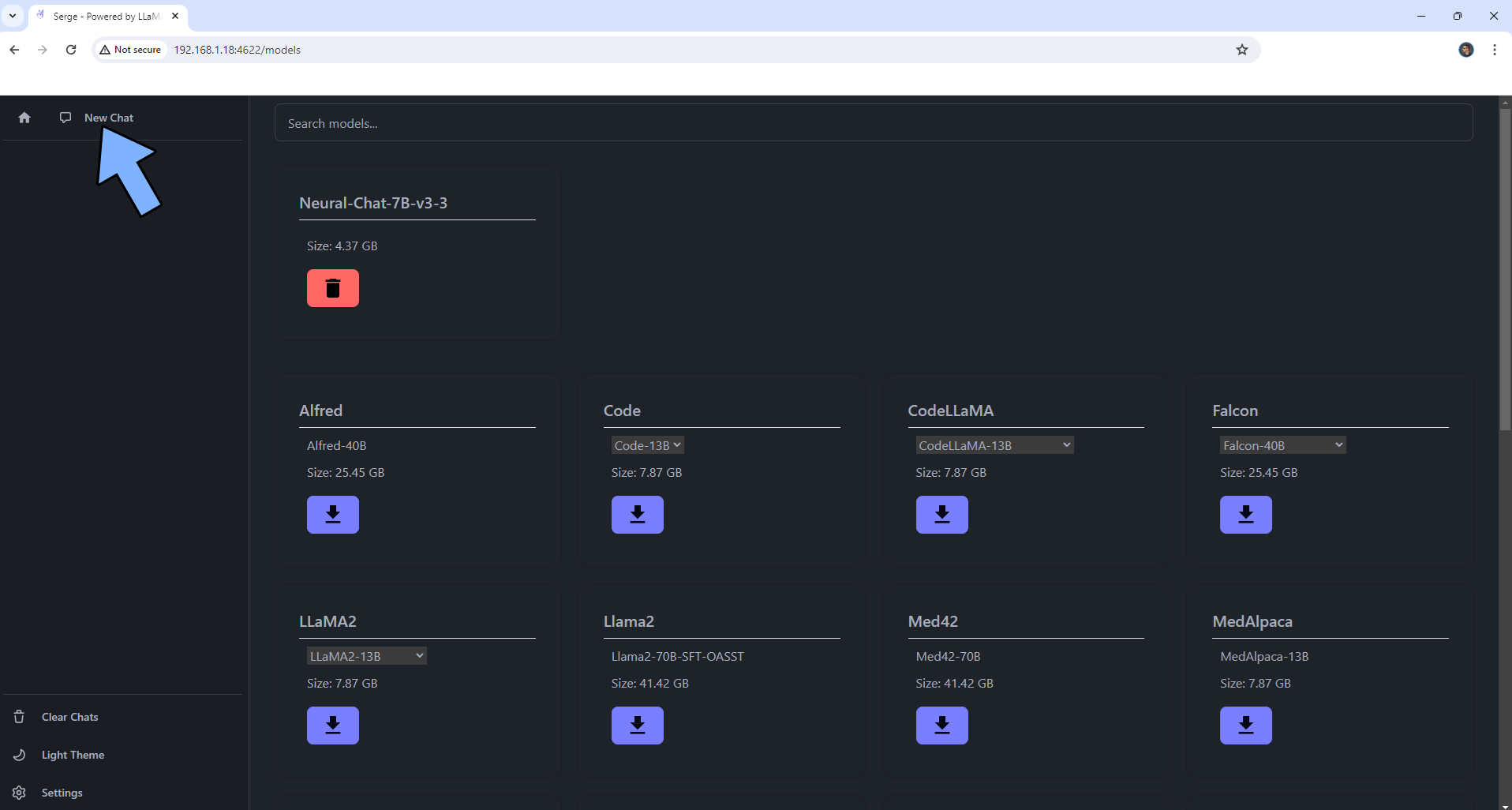
STEP 14
Click START A NEW CHAT. Follow the instructions in the image below.
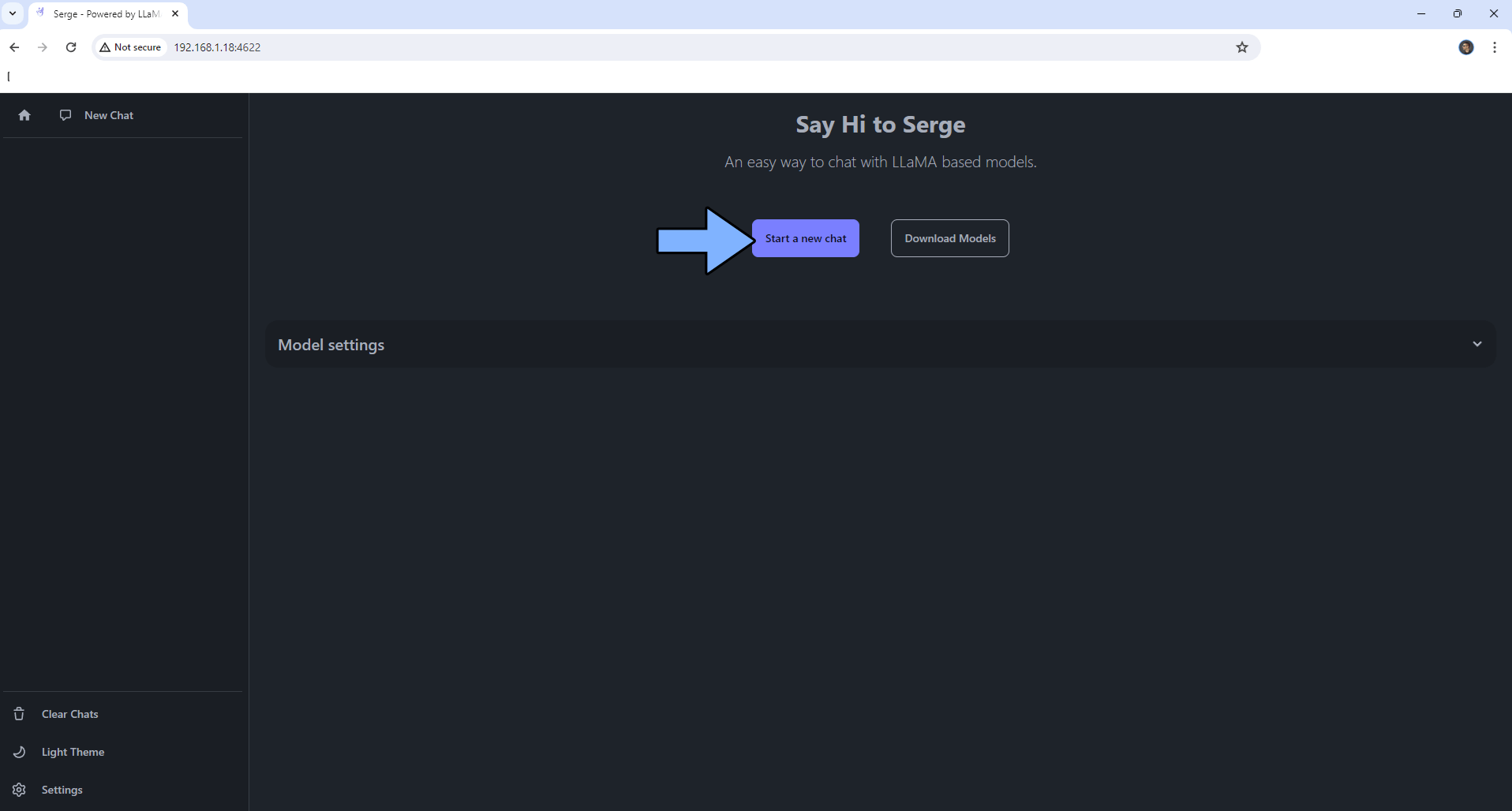
STEP 15
Ask a question, then click the SEND icon. Follow the instructions in the image below.
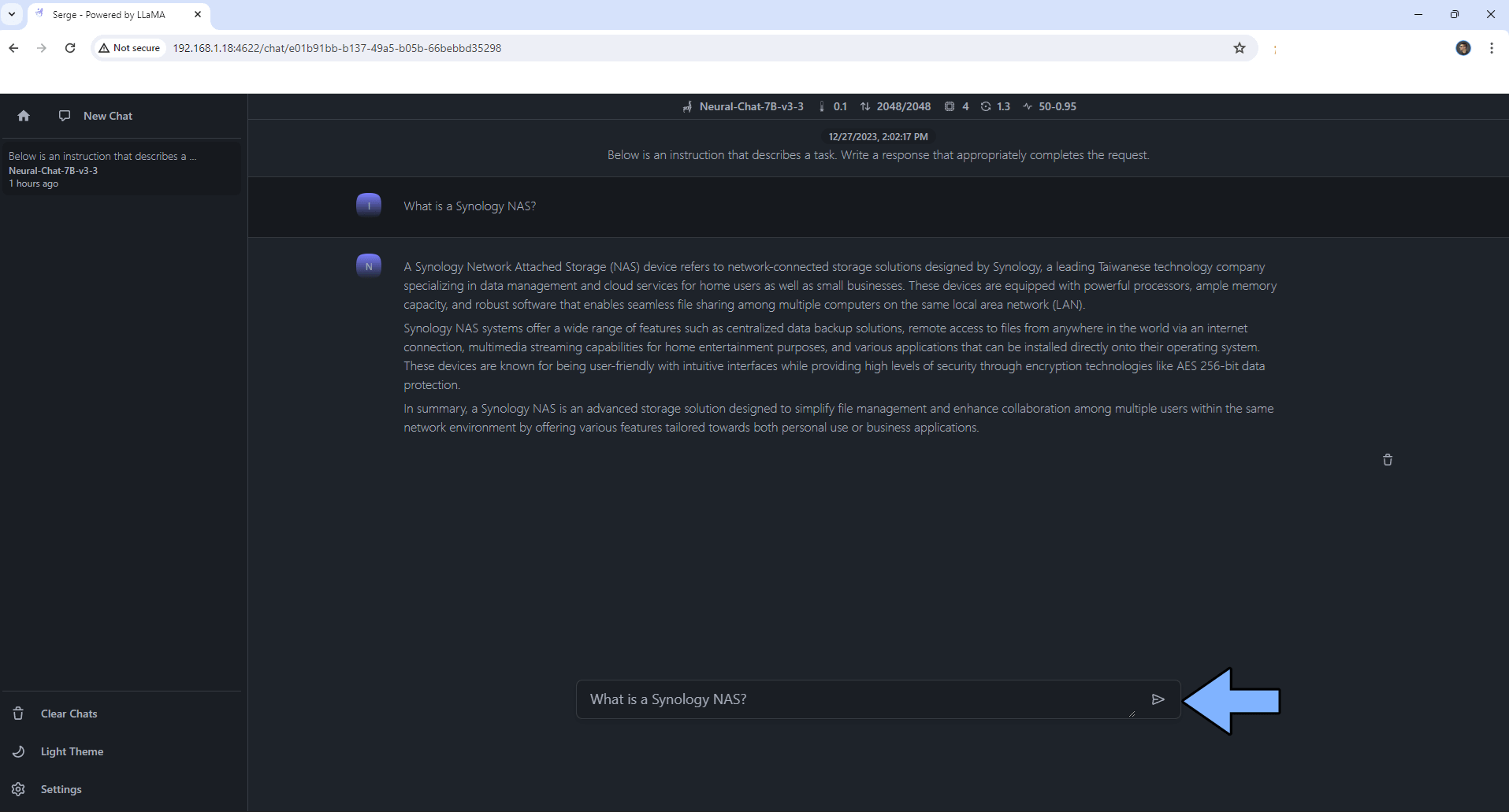
Enjoy Serge!
If you encounter issues by using this container, make sure to check out the Common Docker issues article.
Note: If you want to run the Serge container over HTTPS, check my guide on How to Run Docker Containers Over HTTPS. ⚠️Warning: I do not recommend running Serge via Reverse Proxy. This product should be used only on localhost. Why don’t I recommend running it via Reverse Proxy? Because if someone were to know your HTTPS address, then they can use your Serge AI to ask questions and overload your NAS RAM and CPU.
Note: Can I run Docker on my Synology NAS? See the supported models.
Note: How to Back Up Docker Containers on your Synology NAS.
Note: Find out how to update the Serge container with the latest image.
Note: How to Free Disk Space on Your NAS if You Run Docker.
Note: How to Schedule Start & Stop For Docker Containers.
Note: How to Activate Email Notifications.
Note: How to Add Access Control Profile on Your NAS.
Note: How to Change Docker Containers Restart Policy.
Note: How to Use Docker Containers With VPN.
Note: Convert Docker Run Into Docker Compose.
Note: How to Clean Docker.
Note: How to Clean Docker Automatically.
Note: Best Practices When Using Docker and DDNS.
Note: Some Docker Containers Need WebSocket.
Note: Find out the Best NAS Models For Docker.
Note: Activate Gmail SMTP For Docker Containers.
This post was updated on Wednesday / August 27th, 2025 at 6:17 PM
